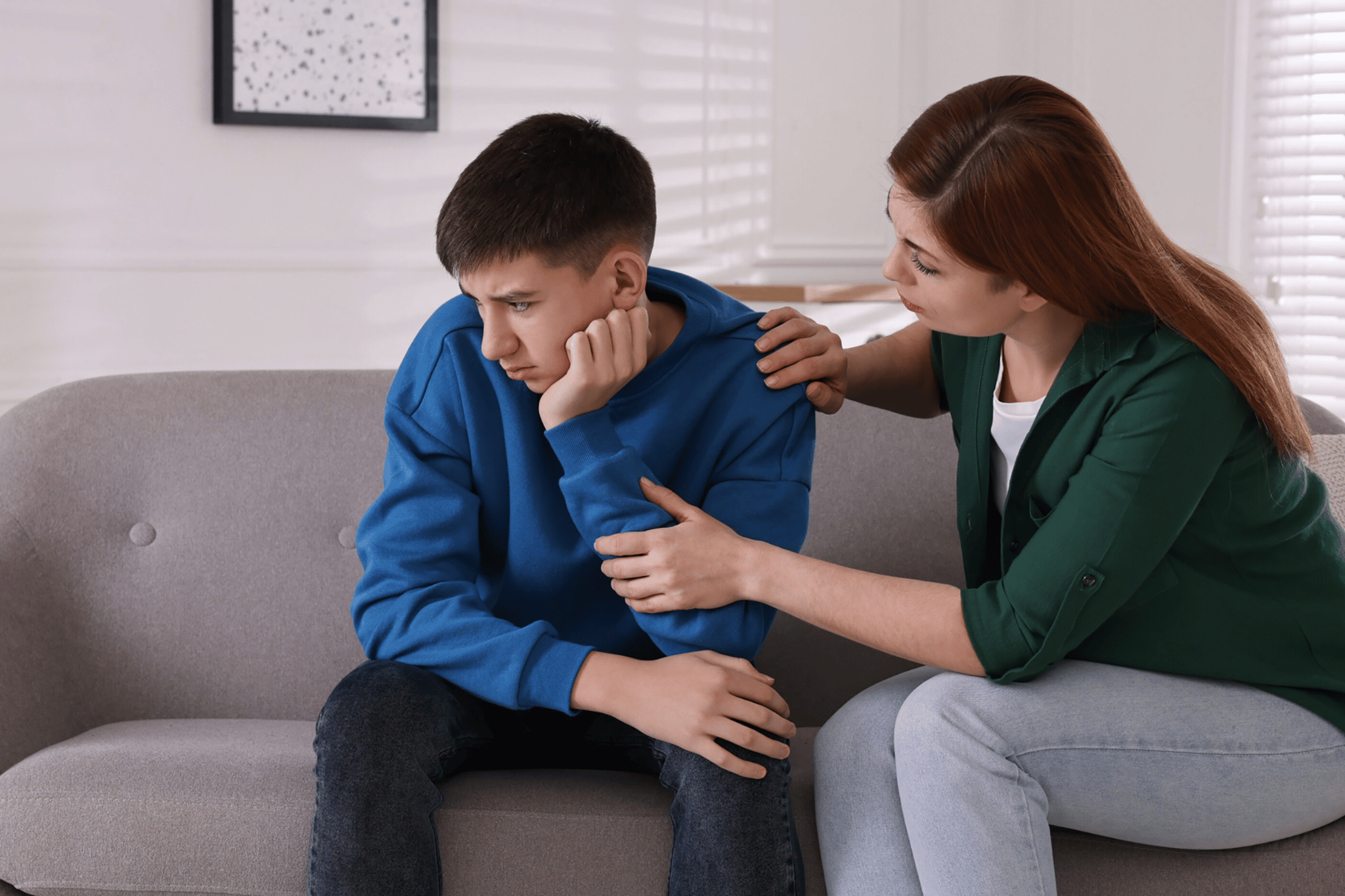Mindfulness and Teens: Improve Mental Health Through Daily Awareness
Mindfulness and teens go hand in hand when it comes to improving emotional balance and reducing stress. This simple yet powerful concept helps teenagers develop healthy coping strategies, build stronger attention skills, and support their overall mental health. With consistent mindfulness techniques for teenagers, stress management becomes more accessible in everyday life.
What Is Mindfulness?
Mindfulness means staying aware of the present moment without judgment. It includes noticing your thoughts, emotions, body sensations, and surroundings. This practice helps teens manage stress, regulate behavior, and improve mood. By learning mindfulness for teens, adolescents develop skills that support both mental and physical health.
Mindfulness techniques often involve meditation, breathing, yoga, and progressive muscle relaxation. These methods are backed by research in developmental psychology and are known to improve executive functions like memory, self-control, and decision-making.

Benefits of Mindfulness for Teens
Mindfulness offers many health-related benefits that can support a teen’s emotional growth and daily functioning:
Stress Relief: Techniques like diaphragmatic breathing and guided meditation help regulate the nervous system and reduce pressure.
Better Focus: Mindfulness boosts attention, allowing students to learn more effectively and respond with intention rather than impulse.
Emotional Regulation: Teens gain skills to manage their emotions and reduce feelings of overwhelm or sadness.
Improved Behavior: With increased self-awareness, teens are more likely to make thoughtful decisions and show compassion.
Boost in Well-Being: Practicing gratitude, experiencing happiness in small moments, and feeling present improve mood and emotional resilience.
These outcomes are supported by health research showing how mindfulness affects the brain, lowers stress, and improves coping abilities.
Everyday Mindfulness Techniques for Teenagers
Simple mindfulness exercises help teens build awareness without needing extra equipment or long sessions:
Breathing Exercises: Focus on the rise and fall of the abdomen with each breath. This helps regulate feelings and promotes calm during stressful situations.
Guided Meditation: Even a 5-minute meditation can help calm the mind and settle emotions.
Mindful Eating: Pay attention to the texture, taste, and smell of food. This enhances appreciation and promotes healthier eating habits.
Yoga and Stretching: Combine exercise with breath to improve physical health and emotional balance.
Progressive Muscle Relaxation: Tense and relax different muscles to reduce tension and enhance relaxation.
These techniques support improved attention, emotional awareness, and behavior regulation—making mindfulness a useful skill in everyday routines.

Mindfulness Programs in Schools
Many schools include mindfulnessforteens in their health curriculum. Programs like Learn to Breathe (L2B) provide a step-by-step approach for teaching mindfulness to students.
L2B Program Highlights:
Teaches emotion regulation and stress relief through structured activities.
Aims to improve mental health in both neurotypical teens and those experiencing depression or anxiety.
Focuses on awareness, self-regulation, and positive learning habits.
Research shows that students who participate in school-based mindfulness programs develop stronger executive functions, emotional balance, and improved classroom behavior.
Trauma-Informed Mindfulness Practices
For teens who have faced trauma, mindfulness must feel safe and supportive. Trauma-informed practices are designed to meet this need:
5-4-3-2-1 Grounding: A sensory practice that draws attention to the present using simple observation.
Breath-Based Techniques: Slow, deep breathing to soothe emotional distress.
Accessible Exercises: Short, repeatable practices that build trust and consistency.
These practices improve emotional regulation and reduce symptoms related to trauma, making them useful tools in both clinical and school settings.
Fun and Engaging Mindfulness Activities
Mindfulness doesn’t have to feel like a chore. Fun approaches keep teens interested and engaged:
Visualization Games: Picture a calming scene, like a beach or quiet forest, to create space between thoughts and feelings.
Music and Meditation: Listening to calming music while meditating supports emotional expression and relaxation.
Movement-Based Practices: Yoga, stretching, or mindful walking integrate mindfulness into physical activity.
By making mindfulness part of their everyday routine, teens strengthen their ability to manage stress and improve emotional health.

Support for Parents and Educators
Parents and teachers play a key role in helping teens understand mindfulness and use it in real life. Here’s how they can support teens:
Introduce Easy Exercises: Start with short practices like mindful breathing or gratitude journaling.
Use Visual Tools: Share video content or apps that explain mindfulness in an accessible way.
Create a Calm Environment: Offer consistent routines and reduce unnecessary pressure.
Encourage Practice: Help teens explore different methods until they find what feels helpful.
Sharing information about mindfulness helps teens view it as a valuable resource rather than a task.
Why Mindfulness Matters
Mindfulness gives teens the ability to respond instead of react. It builds emotional intelligence, supports better decisions, and encourages a healthy relationship with thoughts and feelings. Whether practiced through school programs, informal breathing exercises, or guided meditation, mindfulness is a key part of modern stress management and emotional support.
At Adolescent Mental Health in Orange County, we teach mindfulnessforteens as part of our therapy and support services. Our licensed professionals help teens develop the tools they need to reduce stress, improve mood, and build resilience.
Learn More About Mindfulness Support
To learn how mindfulness can improve your teen’s well-being, contact Adolescent Mental Health in Orange County. Our team is here to help your teen build lifelong tools for emotional strength and peace of mind.
Frequently Asked Questions
1. How does mindfulness help teens manage stress and emotional pressure?
Mindfulness gives teens practical tools to cope with stress by helping them stay grounded in the present moment. When teens face academic pressure, social challenges, or emotional overload, techniques like diaphragmatic breathing and progressive muscle relaxation allow them to calm their bodies and focus their minds. Over time, mindfulness helps regulate emotions, improve mood, and reduce the impact of chronic stress on daily life. It also supports long-term emotional development by strengthening resilience and promoting a greater sense of inner peace.
2. Can mindfulness improve academic performance and focus in teenagers?
Yes, mindfulness can enhance academic performance by improving executive functions such as attention, working memory, and self-regulation. Teens who practice mindfulness are better able to concentrate during class, manage test anxiety, and stay focused on schoolwork. By learning to pause and respond rather than react impulsively, students develop better study habits and experience fewer behavioral disruptions. Research supports that even short daily mindfulness practices can lead to noticeable improvements in both classroom behavior and learning outcomes.
3. What mindfulness activities are most effective and engaging for teens?
The best mindfulness activities for teens are those that feel simple, flexible, and enjoyable. Breathing exercises, guided meditations, and visualization games help teens develop focus and calm. Activities like mindful eating, yoga, or listening to soothing music combine physical movement and emotional awareness in ways that are accessible. These practices can be adapted based on age, mood, and schedule, making them easy to include in everyday routines. When mindfulness feels relatable and engaging, teens are more likely to stick with it and experience its full benefits.
4. How can parents and caregivers support mindfulness at home?
Parents and caregivers play an important role in helping teens build healthy habits around mindfulness. They can introduce short practices, such as morning breathing exercises or evening gratitude reflections. Modeling mindful behavior—like managing stress calmly or expressing emotions clearly—shows teens how mindfulness works in real life. Creating a quiet space at home and encouraging open conversations about thoughts and feelings also helps foster awareness and emotional growth. Using tools like mindfulness apps or educational videos can make the experience more interactive and accessible.









